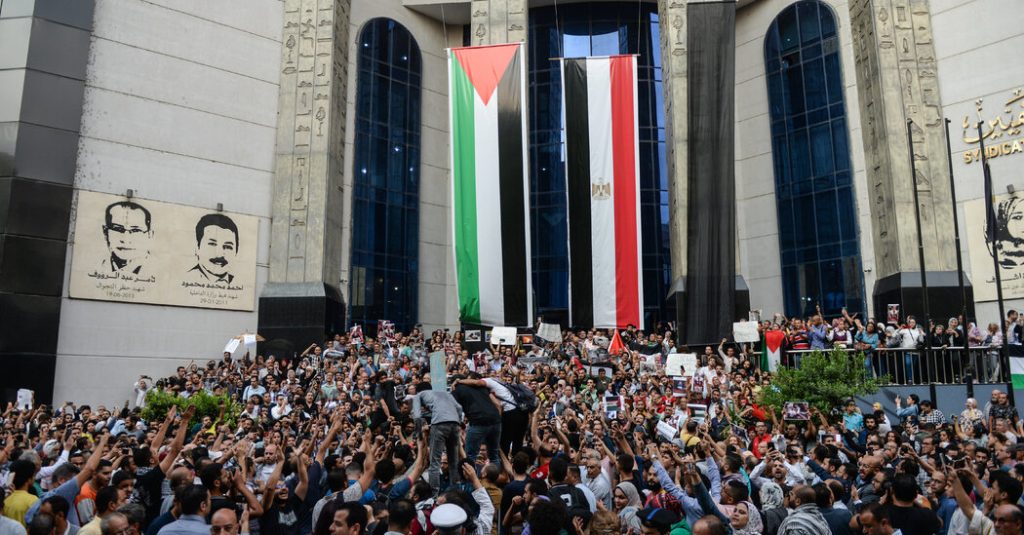The Israeli-Palestinian conflict continues to be a divisive issue across the Middle East, with governments responding in various ways to the ongoing violence in Gaza. In Egypt, the government has denounced Israel over the war in Gaza while also cracking down on protesters demonstrating in solidarity with the Palestinians. Similar patterns of repression have emerged in other Arab countries, where citizens’ outrage over the conflict clashes with official positions that prioritize stability and security over dissent.
The connection between the struggle for justice for Palestinians and demands for greater freedoms at home has long been a key aspect of activism in the Arab world. For many, Israel symbolizes oppression and authoritarianism, making ties with the country a source of discontent with Arab leaders. The recent normalization agreements between several Arab countries and Israel have only intensified frustrations among citizens, who see these deals as betrayals of the Palestinian cause and their own aspirations for democracy and human rights.
Arab governments have attempted to manage public anger over the Gaza conflict by condemning Israel while simultaneously maintaining strategic partnerships with the country. Egypt, which has developed a close security relationship with Israel, benefits from maintaining stability in Gaza and preventing a refugee crisis. Meanwhile, Gulf monarchies like Saudi Arabia and the UAE have longstanding security connections with Israel to counter Iran, their shared regional rival. Critics argue that these security considerations often outweigh public sentiment against normalization with Israel.
As popular protests in solidarity with Gaza continue across the region, some governments are allowing limited expression of dissent while cracking down on more overt displays of activism. Moroccans have gathered in large demonstrations against the government’s normalization agreement with Israel, leading to arrests and crackdowns on dissent. In Kuwait, activists have participated in sit-ins to show their support for the Palestinian cause, despite the risks of government reprisals.
The Israeli-Palestinian conflict has highlighted the delicate balance that Arab governments must strike between responding to public anger and safeguarding their interests and alliances. While some leaders have allowed their populations to express solidarity with the Palestinians, the scale and intensity of protests in recent months have posed a challenge to their authority. As citizens push for greater accountability and transparency in decision-making, governments face growing pressure to address public grievances and reevaluate their relationship with Israel in the context of broader regional dynamics.


